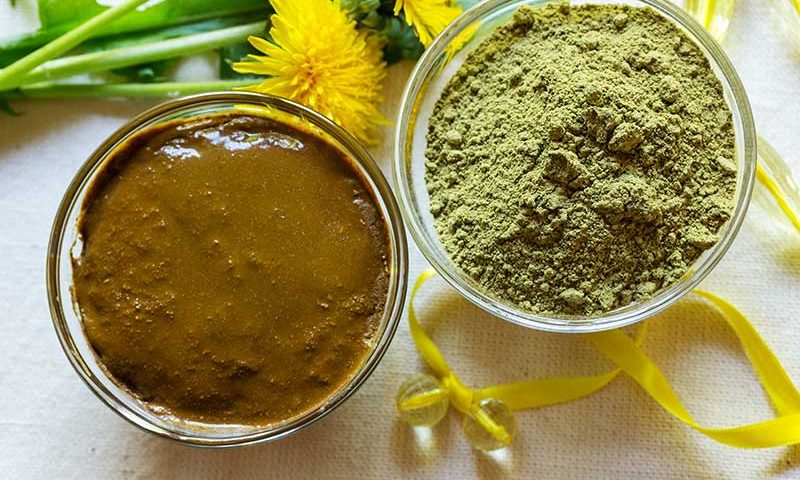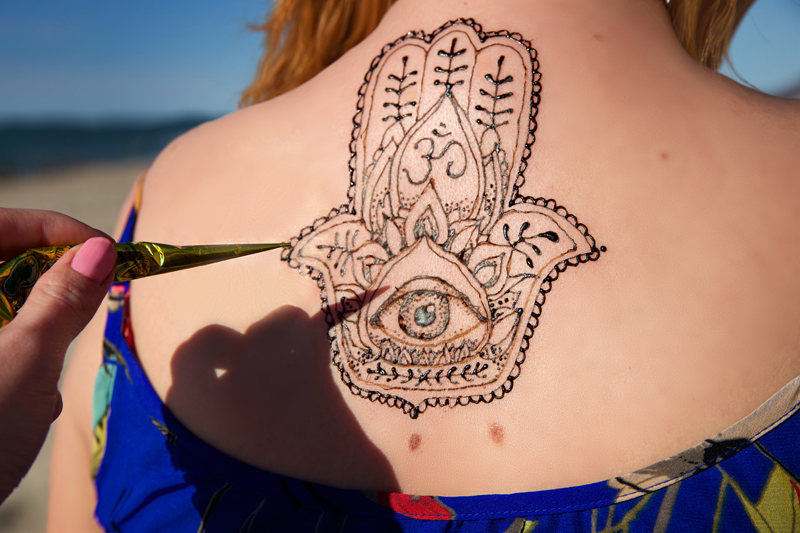
Yoga for Children
18th August 2017
How a vegetarian diet and your workout goes hand in hand
24th August 2017Why you should consider henna as a hair-dye alternative

enna as a Hair Colouring Alternative
Henna, the super pigmented dye produced from a plant officially known as the Lawsonia Inermis, but more commonly referred to as “Hina” or “the henna tree”, has been used for decades to colour skin, hair, and fingernails. Also used in the past to stain fabrics such as silk, wool, and leather, the dye was historically used in parts of Southeast Asia and the Horn of Africa.
Origins of Henna as hair-dye
The first use of henna as a hair dye was recorded in 1500 B.C, with the first and still most traditional shade of the plant based dye being a beautiful red tone. In the 1800s, henna was believed to be popular among Pre-Raphaelite artists in England, particularly the women. The craze was thought to derive from the paintings of Dante Gabriel Rossetti, which often emphasised the natural red hair of his wife and muse, Elizabeth Siddal. For some unknown reason, today’s British society often deems red hair as being unattractive, but unlike today’s Brits, the Pre-Raphaelites were in awe of anyone blessed with natural red flowing locks. From this point onwards, red hair among young bohemian women became increasingly popular, with the dyes being homemade from natural plants and nuts, often using henna at the heart of the recipe to create the rich, red undertones.
For many years, and still to this day, many Muslim men use henna as a dye for hair on the body and, in particular, their beards. Keeping their beards dark in colour is a commendable tradition, derived from the Prophet Muhammed. The use of henna was also encouraged among Muslim women; the plant based dye was used to colour their nails, with the hope to demonstrate femininity and to distinguish the female hand from that of the male. Still, to this day it is not uncommon for Muslim women to not only apply henna the skin on their hands, but also to their finger and toenails.
Pros and Cons of Using Henna as hair-dye
Even though in today’s day and age there is a vast variety of chemical hair dyes readily available in your local drugstore or supermarket that provide predictable, trustworthy results, some people still prefer to opt for more natural hair colouring products such as henna. Here we will be discussing some of the Pros and Cons to using the natural plant based dye, which has displayed an increase in popularity during recent years, with popular companies such as lush now providing a wide range of henna hair colourants.
Nobody can argue that the natural hair dye is filled to the brim with benefits, for both the hair and body. The natural content smooths and nourishes the hair, which most people will understand is the polar opposite of what any ammonia based chemical dye does. Whilst repairing the acid-alkaline balance of the scalp, henna gives the hair added strength, flexibility, and shine. With henna itself being an amazing natural conditioner, there is no need for the weekly hot oil treatments needed if you opt to use chemical based dyes to colour your hair. Nutrients and moisture from the natural mix are locked into the hair structure resulting in a protective layer being formed around each strand. Totally free from the ammonia and toxins used in chemical based dyes, which have the potential to irritate the skin, henna dyes are irreplaceable to those with sensitive skin that find chemical substances to harsh on the delicate area of the head and face. Also available in a colourless variety, henna is widely used today as an effective, deep treatment hair mask to promote healthy hair growth and bring life back to dry and damaged hair.
As the natural hair colourant is increasing in popularity, shops are being flooded with products claiming to be henna, but only a few of them are the natural plant in its truest form. An important thing to remember is that natural henna is red or orange in colour, therefore making it a physical impossibility for 100% natural henna hair dyes to be available in any other colour such as black, brown or blonde. To persuade members of the public to buy their natural, miracle working hair dyes, some companies are going as far as lying on the packaging about what the product make up includes, and at times even missing off harmful products from the ingredients listing. Purchasing your hair colourant from a local Indian market, or ordering it online from a licensed website will be your best bet in getting your hands on a product with 100% natural, henna pigment.
Things to Consider Before Using Henna
Before committing to the natural alternative for hair colouring, it will be of benefit to you to make sure that you’ve done your research so you can decide if the plant based method is the right one for you. The process of using henna dye on your hair is one of great length, so making sure you’re fully prepared for the process before you go ahead is a good idea. Making sure to use the right amount of product for your hair length is important, as you generally end up needing less than you may have heard. Taking the time to find a non-metallic bowl to decanter the dye into will work in your favour, as metals may result in chemical reactions with henna, leaving unpleasant, often green-toned results on your hair.
Henna hair colourant can provide excellent, natural results if taken the time to be used correctly. Whether you’re looking to gain the rich red tone that henna can bring to the hair, or hope to achieve softer, more nourished locks in general, henna hair dyes are worth giving a go. When you’re satisfied with your new hair style, to complete your bohemian look and lifestyle, pick up a yoga mat and hit your local workout class.
Like with any hair colouring product, it’s always a good idea to do a patch test before committing to your whole head and to immediately consult a medical professional if you have any concerned about the product.

